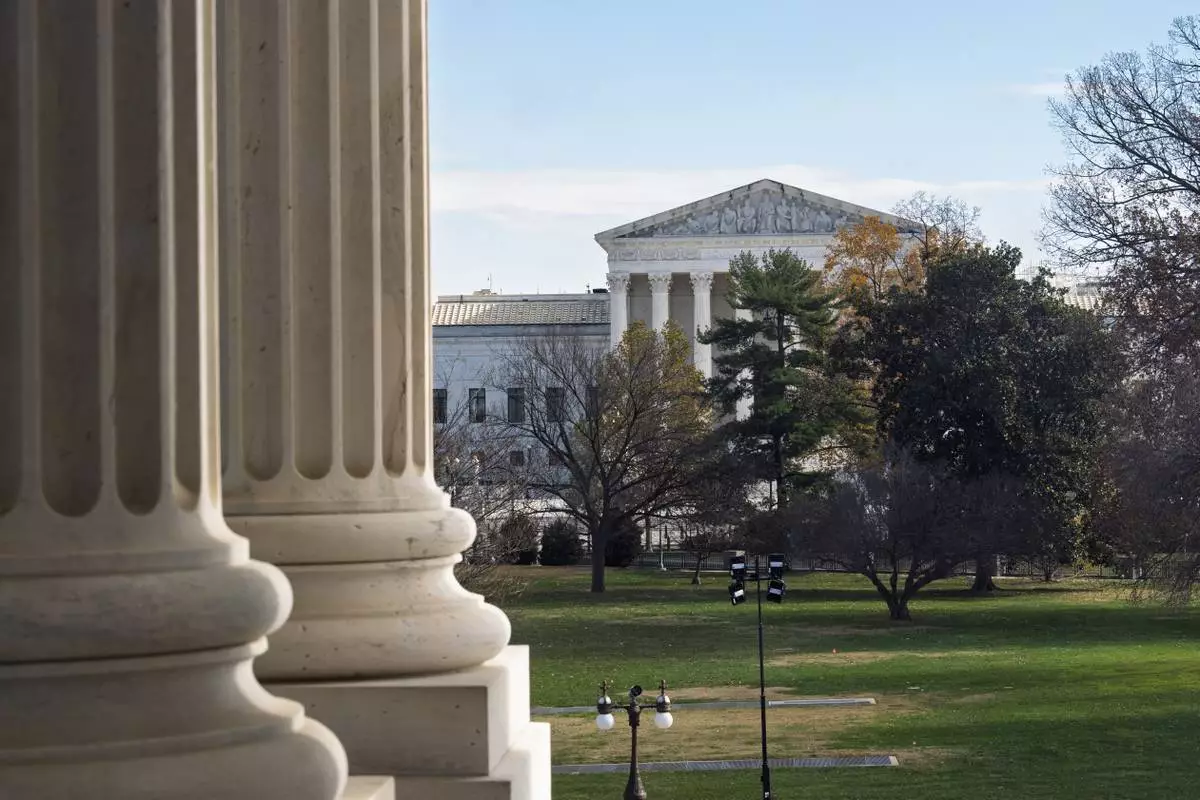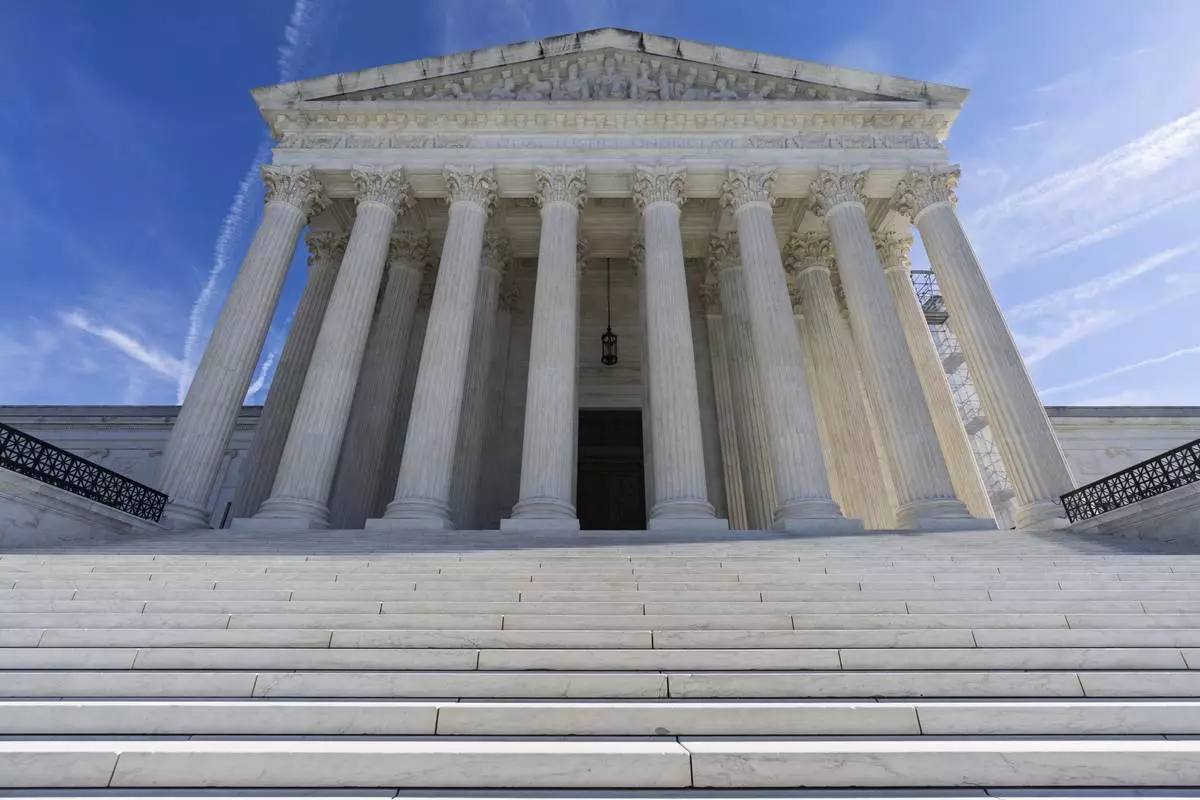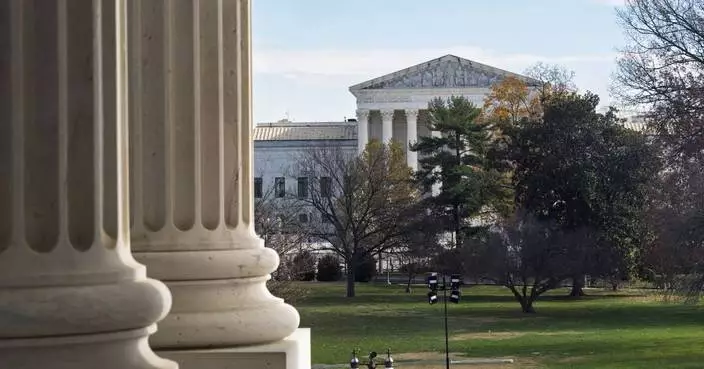LOS ANGELES--(BUSINESS WIRE)--Dec 4, 2024--
Faraday Future Intelligent Electric Inc. (Nasdaq: FFIE) (“FF”, “Faraday Future”, or the “Company”), a California-based global shared intelligent electric mobility ecosystem company, today announced that Dr. Lei Gu, a pioneering figure in China's automotive industry and an expert in vehicle development and safety technology, will join FF as President of FX Global EV Research and Development (R&D) Center and Vehicle Line Executive (VLE) for the FX 6.
This press release features multimedia. View the full release here: https://www.businesswire.com/news/home/20241203614381/en/
Dr. Gu will focus his efforts on the overall EV R&D, which includes powertrain, body, chassis, interior and exterior, and thermal management, etc. Together, the IAI (Internet, Autonomous Driving, Intelligence) R&D team and the EV R&D team collaborate closely on delivering solutions that redefine the overall EV experience.
Dr. Gu joins FF with over two decades of extensive experience in automotive R&D and management, having held prominent roles in U.S., Chinese and international corporations. His deep understanding of the automotive sector, combined with his expertise in technology and management, qualifies him to oversee the FF and FX EV product development. FF intends to leverage his experience with mobilizing global resources and talent to progress FF’s business strategies for the FX brand and enhance the Company’s product strength.
At Ford Motor Company in the U.S., Dr. Gu focused on the research and experimental management of vehicle structure safety and passenger protection systems. His leadership in optimization and reliability earned him a reputation as a leader in automotive collision safety.
In China, Dr. Gu held key roles such as President of the Automobile Engineering Research Institute at Chery Automobile, Vice President and Chief Technology Officer of BAIC Motor, and President of the Global Engineering and Research Institute at BAIC Group, where he was instrumental in the development and acquisition of core automotive technologies. He received his PhD from Northwestern University at Evanston, Illinois.
“We are confident that Dr. Gu's arrival will significantly elevate both FF and FX’s product development in our target markets,” said Matthias Aydt, Global CEO of FF. “His leadership will be pivotal in building a team that integrates class-leading products, global talents, innovative technology, and manufacturing, propelling FF and FX towards a leadership position in the EV market.
ABOUT FARADAY FUTURE
Faraday Future is the pioneer of the Ultimate AI TechLuxury ultra spire market in the intelligent EV era, and the disruptor of the traditional ultra-luxury car civilization epitomized by Ferrari and Maybach. FF is not just an EV Company, but also a software-driven intelligent internet Company. Ultimately FF aims to become a User Company by offering a shared intelligent mobility ecosystem. FF remains dedicated to advancing electric vehicle technology to meet the evolving needs and preferences of users worldwide, driven by a pursuit of intelligent and AI-driven mobility.
FORWARD LOOKING STATEMENTS
This press release includes “forward looking statements” within the meaning of the safe harbor provisions of the United States Private Securities Litigation Reform Act of 1995. When used in this press release, the words “estimates,” “projected,” “expects,” “anticipates,” “forecasts,” “plans,” “intends,” “believes,” “seeks,” “may,” “will,” “should,” “future,” “propose” and variations of these words or similar expressions (or the negative versions of such words or expressions) are intended to identify forward-looking statements. These forward-looking statements, which include statements regarding Dr. Gu’s anticipated contributions to FF and FX, FF and FX product development, and FF and FX market positioning, are not guarantees of future performance, conditions or results, and involve a number of known and unknown risks, uncertainties, assumptions and other important factors, many of which are outside the Company’s control, that could cause actual results or outcomes to differ materially from those discussed in the forward-looking statements.
Important factors, among others, that may affect actual results or outcomes include, among others: the Company’s ability to secure the necessary funding to execute on the FX strategy, which will be substantial; the Company’s ability to secure agreements with OEMs that are necessary to execute on the FX strategy; the Company’s ability to continue as a going concern and improve its liquidity and financial position; the Company’s ability to pay its outstanding obligations; the Company's ability to remediate its material weaknesses in internal control over financial reporting and the risks related to the restatement of previously issued consolidated financial statements; the Company’s limited operating history and the significant barriers to growth it faces; the Company’s history of losses and expectation of continued losses; the success of the Company’s payroll expense reduction plan; the Company’s ability to execute on its plans to develop and market its vehicles and the timing of these development programs; the Company’s estimates of the size of the markets for its vehicles and cost to bring those vehicles to market; the rate and degree of market acceptance of the Company’s vehicles; the Company’s ability to cover future warranty claims; the success of other competing manufacturers; the performance and security of the Company’s vehicles; current and potential litigation involving the Company; the Company’s ability to receive funds from, satisfy the conditions precedent of and close on the various financings described elsewhere by the Company; the result of future financing efforts, the failure of any of which could result in the Company seeking protection under the Bankruptcy Code; the Company’s indebtedness; the Company’s ability to cover future warranty claims; the Company’s ability to use its “at-the-market” program; insurance coverage; general economic and market conditions impacting demand for the Company’s products; potential negative impacts of a reverse stock split; potential cost, headcount and salary reduction actions may not be sufficient or may not achieve their expected results; circumstances outside of the Company's control, such as natural disasters, climate change, health epidemics and pandemics, terrorist attacks, and civil unrest; risks related to the Company's operations in China; the success of the Company's remedial measures taken in response to the Special Committee findings; the Company’s dependence on its suppliers and contract manufacturer; the Company's ability to develop and protect its technologies; the Company's ability to protect against cybersecurity risks; and the ability of the Company to attract and retain employees, any adverse developments in existing legal proceedings or the initiation of new legal proceedings, and volatility of the Company’s stock price. You should carefully consider the foregoing factors and the other risks and uncertainties described in the “Risk Factors” section of the Company’s Form 10-K filed with the SEC on May 28, 2024, as amended on May 30, 2024, and June 24, 2024, as updated by the “Risk Factors” section of the Company’s first quarter 2024 Form 10-Q filed with the SEC on July 30, 2024, and other documents filed by the Company from time to time with the SEC.


Faraday Future Appoints Veteran Automotive Technology Expert and Industry Leader Dr. Lei Gu to President of FX Global EV R&D Center (Photo: Business Wire)
The Supreme Court heard arguments on Wednesday in just its second major transgender rights case, a challenge to a Tennessee law that bans gender-affirming care for minors.
The nation’s top court will weigh whether Tennessee’s law violates the equal protection clause of the 14th Amendment, requiring that people in similar circumstances be treated the same under the law. Both sides in the case say they are acting to protect minors from harm.
At least 26 states have adopted laws restricting or banning such care for minors, and most of those states face lawsuits.
Here's the latest:
Chase Strangio, the ACLU attorney who represented the families challenging the ban, said he was “humbled and honored” to appear before the court.
Strangio said the arguments Tennessee used for its ban could also be used to justify a national ban. Strangio is the first transgender attorney to argue before the Supreme Court.
“No matter what happens, we will keep fighting,” Strangio said.
Speaking outside the Supreme Court building after the arguments, Tennessee Attorney General Jonathan Skrmetti said the state’s argument would allow other states to set their own policies on whether or not to restrict the case.
“Each state is allowed to make its own decisions,” he said.
“Today marks a pivotal moment in Tennessee and our country’s history. The Supreme Court of the United States heard oral arguments for a first-of-its-kind case that shows every state in the country what it really looks like to stand up for children,” Tennessee state Sen. Jack Johnson said in a statement.
Listen in full here.
Arguments begin at 1:12:38.
She pointed out that the arguments in favor of Tennessee’s law could also potentially support nationwide restrictions on transgender health care for minors.
The issue could remain at the center of the political conversation after the inauguration next month of President-elect Donald Trump, who made opposition to transgender rights central to his campaign’s closing message.
The arguments in front of the justices wrapped up after more than two hours.
“Our fundamental point is there is no sex-based line here,” Rice said.
Rice argued that the Tennessee law is instead aimed at the purpose of the treatment.
Children can get puberty blockers to treat early onset puberty, but not as a treatment for gender dysphoria.
Justice Amy Coney Barrett asked Tennessee Solicitor General Matt Rice about the possible impact of both laws restricting women and girls from women’s and girls’ sports competitions — and those that keep them out of women’s and girls’ bathrooms in schools or other public buildings.
At least 24 states have sports laws. At least 11 have bathroom laws.
The court’s three liberal justices seem firmly on the side of the Biden administration and the families who are challenging the Tennessee law.
But it’s not clear that any of the court’s six conservatives will go along.
Five conservatives have voiced varying degrees of skepticism of the challengers’ arguments. Gorsuch has yet to say anything.
Tennessee Solicitor General Matt Rice is now before the court to defend the state’s law, following the conclusion of ACLU attorney Chase Strangio’s time at the podium.
Justice Amy Coney Barrett earlier had asked if there were examples of “de jure,” or by law, discrimination against transgender people rather than private discrimination.
Strangio cited laws against cross-dressing and previous bans on military service by transgender people.
President Joe Biden in 2021 reversed a Trump-era policy that largely barred transgender people from serving in the military. Trump has indicated he plans to reinstate that ban when he takes office in January.
“The Constitution leaves that question to the people’s representatives, rather than to 9 people, none of whom is a doctor,” Roberts said in questioning Strangio.
Strangio notes that multiple studies show the care reduces the risk of depression and suicidality.
Transgender youth in the United States have been flooding crisis hotlines since the election of Donald Trump, who made anti-transgender themes central to his campaign.
ACLU attorney Chase Strangio has begun his arguments against Tennessee's ban. He follows U.S. Solicitor General Elizabeth Prelogar, who finished answering questions after spending more than an hour at the podium.
Justice Ketanji Brown Jackson said she saw some parallels between the case and a 1967 landmark decision that legalized interracial marriage.
She said that in the Loving case, which addressed a Virginia law, “everyone seemed to concede that a racial classification was being drawn as a starting point. The question seemed to be whether it was discriminatory.”
Barrett wasn’t on the court when the 2020 case was decided so this is her first time diving into the issue as a justice.
She sounded skeptical of the administration’s argument that the law discriminates because of sex. She was equally skeptical that the court should for the first time declare that discrimination against transgender people should be viewed as similar to bias based on race, sex and national origin, all of which have a special legal status.
Barrett said transgender people have not experienced the same long history of discrimination written into the law in the same way those other groups faced.
“All other suspect classes do have that long de jure history of discrimination,” Barrett said, using the Latin phrase for “according to law.”
Justice Brett Kavanaugh, who has coached his daughters’ youth basketball teams, asked about the impact of a ruling on gender-affirming care in that realm.
“If you prevail here on the standard of review, what would that mean for women and girls sports?” he asked. “Would transgender athletes have a constitutional right to participate in girls’ sports?”
At least 24 states have adopted restrictions on transgender women and girls in women’s and girls’ sports competitions. There have also been legal challenges to those laws, with mixed verdicts so far.
Prelogar said that’s a different issue and suggested the court could say in an opinion that sides with her argument that the Tennessee law would not impact the sports issue.
“How do we as a court choose which set of risks is more serious in deciding whether to constitutionalize this whole area?” Kavanaugh said.
Research and reports from individual doctors and clinics suggest that detransitioning is rare.
Twenty-six states have passed versions of bans.
Prelogar said some might stand up to heightened scrutiny by courts than others.
“We do think there is a real space for states to regulate here,” Prelogar said.
She pointed to West Virginia’s as one that might fare better because it gives a path for treatment for teens who are considered by medical providers to be at risk for self-harm or suicide.
During questioning by Justice Sonia Sotomayor, Prelogar noted that every major medical organization has supported gender-affirming care for transgender youth, and many have filed briefs supporting the challenge to Tennessee’s law.
“Some children suffer incredibly with gender dysphoria, some attempt suicide,” Sotomayor said.
The groups include the American Medical Association and the American Academy of Pediatrics.
Justices Thomas and Alito both asked about when the states can and cannot have sex-based laws.
“We think the court just needs to recognize the sex-based classification and send this case back,” Prelogar said, adding that the treatments can be “critical, sometimes lifesaving, care to individuals with severe gender dysphoria.”
Tennessee’s law bars puberty blockers and hormone treatment only for transgender minors.
The votes of Chief Justice John Roberts, Justice Neil Gorsuch and Justice Amy Coney Barrett probably will decide this case.
Here’s a look at where the Justices stand:
Roberts and Gorsuch joined the court’s liberal justices (Sonia Sotomayor, Elena Kagan and Ketanji Brown Jackson) in the 2020 workplace discrimination case won by LGBTQ+ plaintiffs.
Three conservative justices, Samuel Alito, Brett Kavanaugh and Clarence Thomas, dissented on that case.
Barrett has no high court track record on transgender issues, although she votes with the other conservatives in most of the high-profile cases.
If the parties challenging the Tennessee law hope to win, they need at least two conservative justices on their side, along with the three liberal members of the court.
Alito, who seems likely to vote to uphold the Tennessee ban, is using his questioning of Prelogar to persuade his colleagues that this case is different from the one four years ago where the court sided with LGBTQ+ people.
The Bostock decision in 2020 found that the landmark Civil Rights Act of 1964 banned discrimination against LGBTQ+ people in the workplace.
That “involved the interpretation of particular language in a particular statute,” Alito said.
This case involves the Constitution’s equal protection clause, a key provision of the 14th Amendment.
Alito focused on where European countries stand on gender-affirming care for minors, noting that Finland, Norway and Sweden have policies discouraging it from being available routinely to minors.
Prelogar noted that those countries don’t go as far as Tennessee’s outright ban on the treatments for transgender minors.
The report asserts there is “no good evidence on the long-term outcomes of interventions to manage gender-related distress.”
But advocates for transgender people have a lot of questions about the report.
▶The AP delved into it here
Chief Justice John Roberts, who is one of the most closely watched justices in this case and previously voted in favor of transgender rights in the workplace, is asking whether this question might be best left to state legislatures.
Prelogar responds that the state does have regulatory powers, but argues Tennessee’s law is too broad.
Supreme Court arguments have begun over Tennessee’s ban on health care for transgender minors. The first attorney to argue is U.S. Solicitor General Elizabeth Prelogar, arguing against the ban.
The Republican-controlled Statehouse and GOP Gov. Bill Lee have signed off on legislation banning transgender athletes from participating in girls’ sports.
Republicans have also blocked businesses from setting their own rules about bathroom access — a move that critics have warned targets transgender people.
This year, they placed a ban on the spending of state money on hormone therapy or sex reassignment procedures for prisoners and required public school employees to out transgender students to their parents.
Shortly after enacting the ban on gender-affirming care, the Republican-dominant Legislature also passed legislation penalizing adults who help minors receive gender-affirming care without parental consent.
Supporters of the proposal couldn’t point to any examples of minors leaving the state to receive gender-affirming care without their parent’s consent, but said it was needed anyway to protect children.
Republican Gov. Bill Lee later signed off on the first-in-the-nation proposal.
Over the years, Republican-dominant Tennessee has not only been among the top states to introduce the most anti-LGBTQ+ legislation but also the top state to enact such legislation.
According to the Human Rights Campaign, Tennessee has enacted more anti-LGBTQ+ laws than any other state since 2015, identifying more than 20 bills that advanced out of the Legislature earlier this year. That includes Gov. Bill Lee signing off on bills banning the spending of state money on hormone therapy or sex reassignment procedures for prisoners — though it would not apply to state inmates currently receiving hormone therapy — and requiring public school employees to out transgender students to their parents.
Attorneys for the families challenging Tennessee’s law have warned a ruling upholding the measure could open the door for more attempts to restrict the care for transgender adults as well as youth.
Florida is the only state that has enacted a law restricting gender-affirming care for transgender adults, though similar restrictions have been attempted in at least two other states.
Ohio Gov. Mike DeWine’s administration earlier this year proposed and then backed off rules that advocates said would have blocked access to gender-affirming care provided by independent clinics and general practitioners.
Missouri’s Republican attorney general last year pushed for an emergency rule that would have placed limits on care for adults, but state officials abruptly dropped it. Missouri later this year enacted a law banning some gender-affirming care for minors.
Most adults still are allowed to access gender-affirming health care under the Missouri law, but Medicaid won’t cover it.
Arguing for the Biden administration is U.S. Solicitor General Elizabeth Prelogar. She’s the second woman to serve in the role in the country’s history, and this could be the last major case she argues as solicitor general — essentially the federal government’s top lawyer before the Supreme Court.
Matt Rice, Tennessee’s state solicitor general, will defend the law before the high court. He served in 2019 as a clerk for Justice Clarence Thomas, who dissented from a ruling that term that a landmark civil rights law protects LGBTQ+ workers.
The treatments at the heart of today’s arguments are also used by minors who are not transgender, including intersex people. Tennessee and other states have not tried to ban puberty blockers or hormone treatments for those uses.
Puberty blockers can be used to delay sexual development in children who go through puberty before age 8 or 9. Adolescents with delayed puberty can be treated with hormones.
Thomas was famously silent during arguments for years at a time because he said he relied on written briefs and thought his colleagues interrupted too much.
But when the court started hearing cases remotely during the COVID-19 pandemic, the justices altered their practice and asked questions one by one, instead of the usual free-for-all. Even after they returned to the courtroom, the justices have informally agreed to allow Thomas, the longest-serving member of the court, to go first.
He has asked questions at every argument session he’s attended since the court’s first remote arguments in May 2020.
Don’t be fooled by the hour the court has allotted. The session could easily go twice as long.
Gone are the days when Chief Justice William Rehnquist would cut lawyers off mid-sentence when the red light went on at their podium. Chief Justice John Roberts was more lenient even before the coronavirus pandemic forced changes to the structure of the arguments.
But the administration’s position seems likely to change after Trump takes office.
He campaigned against transgender rights, using demeaning language and misrepresentations as he pledged to remove “transgender insanity” in schools and restrict participation in women’s sports.
Brian Williams of Nashville, Tennessee, says his transgender daughter, L.W., has to travel to another state to receive the health care that “we and her doctors know is right for her.”
Williams, speaking on a Zoom call arranged by the legal team representing the family and others at the Supreme Court, said L.W. approached him and his wife, Samantha, several years ago to share “honestly and openly her pain” over her gender identity.
She began taking puberty-blocking drugs at age 13 and started hormone therapy a year later, Williams says.
Today, her father says, she is a “16-year-old planning for her future, making her own music and looking at colleges.”
Williams says he’s not expecting people to understand everything about the family. But he asks others to “open your hearts and listen.”
President-elect Trump backed a national ban on such care as part of his 2024 campaign in which he demeaned and mocked transgender people. Trump and his allies also promised to roll back protections for transgender people throughout the campaign.
Meanwhile, in its waning days, the Biden administration, along with families of transgender adolescents, will appeal to the justices to strike down the Tennessee ban as unlawful sex discrimination and protect the constitutional rights of vulnerable Americans.
Earlier this year, the administration and Democrat-led states extended protections for transgender people, including a new federal regulation that seeks to protect transgender students.
People on both sides of the issue are gathered outside the court for demonstrations that are increasing in volume ahead of arguments.
They carried signs reading “Champion God’s Design” and “Kids Health Matters” on one side and “Fight like a Mother for Trans Rights” and “Freedom to be Ourselves” on the other.
Speeches and music filled the air on the sidewalk outside the court’s marble steps.
Multiple bills related to transgender youth have already been filed in Texas’ legislature ahead of its session next year.
The proposals include a bill that would make it easier to sue providers of gender-affirming medical care for children.
Other bills include restrictions on which public restrooms transgender people can use, and limits on how topics related to sexual orientation and gender identity are taught in schools.
At least 26 states have adopted laws banning gender-affirming medical care for transgender minors. Federal judges in Arkansas and Florida have struck down the bans in those states as unconstitutional, though an appeals court has put the Florida ruling on hold. The ban in New Hampshire is to take effect on Jan. 1.
Several Democratic-controlled states have policies seeking to protect access to gender-affirming care.
Additionally, at least 24 states have bans barring transgender women and girls from competing in certain women’s and girls’ sports competitions. And at least 11 have laws barring transgender women and girls from using girls’ and women’s bathrooms at public schools — and in some cases, in other government facilities.
Most laws are reviewed and upheld under the lowest level of scrutiny, known as rational basis review. Indeed, the federal appeals court in Cincinnati that allowed the Tennessee law to be enforced held that lawmakers acted rationally in adopting the law to address the risks they perceived in gender-affirming care for minors.
But when discrimination is present, judges take a closer look.
Sex discrimination gets heightened scrutiny, which requires states to identify an important objective and show that the law helps accomplish it. Racial discrimination, not at issue here, is reviewed under strict scrutiny — the highest level — and laws rarely survive such a demanding examination.
Roberts and Gorsuch joined the court’s liberal justices in the 2020 workplace discrimination case won by LGBTQ+ plaintiffs. Three conservative justices, Samuel Alito, Brett Kavanaugh and Clarence Thomas, dissented.
If the parties challenging the Tennessee law hope to win, they need at least two conservative justices on their side, along with the three liberal members of the court. Barrett has no track record on transgender issues, although she votes with the other conservatives in most of the high-profile cases.
The Supreme Court almost always issues its decisions by early summer, usually before the end of June. The transgender health case could be one of the last cases decided, which is typical of highly contentious issues. One additional potential cause for delay is the Trump administration could weigh in soon after he takes office. It’s not clear how that might affect the case.
Chase Strangio will be the first openly transgender attorney to argue before the nation’s highest court, representing families who say Tennessee’s ban on health care for transgender minors leaves their children terrified about the future.
Strangio will bring months of intense legal preparation to the case as well as hard-won lessons from his own experience.
“I am able to do my job because I have had this health care that transformed and, frankly, saved my life,” he said. “I am a testament to the fact that we live among everyone.”
Strangio grew up outside of Boston and came out as trans when he was in law school. Now 42, he’s an American Civil Liberties Union attorney whose legal career has included representing former Army intelligence analyst Chelsea Manning, challenging a ban on transgender people serving in the military and helping win an LGBTQ+ worker-discrimination case at the Supreme Court. He’s also the father of a 12-year-old, the son of a father who supports Trump, and has a close relationship with his Army veteran brother.
▶ Read more about Strangio and his history as a transgender advocate
The Supreme Court’s only other major case on transgender rights was in 2020 when the court ruled that workplace discrimination against LGBTQ+ people was sex discrimination in violation of the federal civil rights law commonly known as Title VII.
The court concluded in separate cases involving a gay man and a transgender woman that they were discriminated against because of their sex. Justice Neil Gorsuch, an appointee of Donald Trump’s in his first term in the White House, wrote the 6-3 opinion for the court. Chief Justice John Roberts was the only other conservative member of the court in the majority.
The nation’s top court will be weighing whether Tennessee’s law violates the equal protection clause of the 14th Amendment, requiring that people in similar circumstances be treated the same under the law. Both sides in the case claim they are acting to protect minors from harm.
Transgender attorney Chase Strangio will represent families who say Tennessee’s ban leaves them terrified for the future and that access to this kind of care is life-saving.
Tennessee, meanwhile, will argue before the Supreme Court that treatments like puberty blockers and hormones carry risks for young people and its law protects them from making treatment decisions prematurely.

The Supreme Court is framed by the columns of the Capitol in Washington, Tuesday, Dec. 3, 2024. T (AP Photo/J. Scott Applewhite)

FILE - Advocates gather for a rally at the state Capitol complex in Nashville, Tenn., to oppose a series of bills that target the LGBTQ community, Feb. 14, 2023. (AP Photo/Jonathan Mattise, File)

FILE - People attend a rally as part of a Transgender Day of Visibility, Friday, March 31, 2023, by the Capitol in Washington. (AP Photo/Jacquelyn Martin, File)

FILE - The Supreme Court is seen in Washington, Nov. 2, 2024. (AP Photo/J. Scott Applewhite, File)















